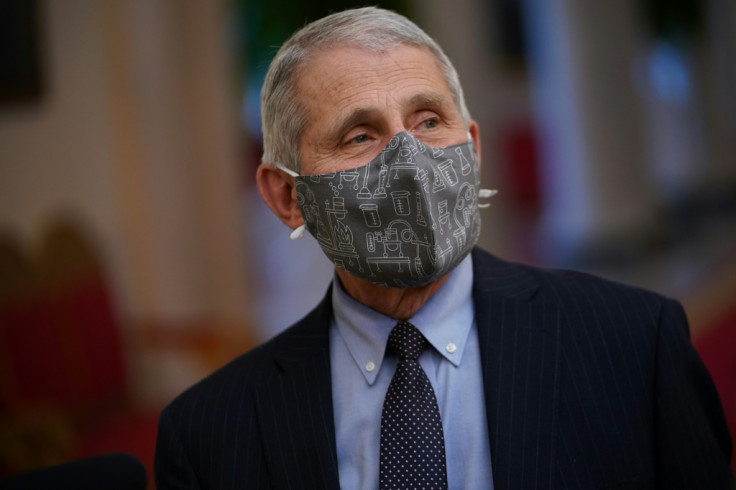New name for long COVID: Fauci refers to long-term coronavirus effects as PASC
There are cases of COVID infection that could make a patient experience the symptoms for a very long time.
An extended coronavirus infection referred to by many as "long COVID" has an official name and Dr. Anthony Fauci, the director of the National Institute of Allergy and Infectious Diseases, finally gave it a name during a White House press conference Wednesday. Post-acute sequelae of SARS-CoV-2 infection, or PASC, is the formal term for an extended type of COVID-19 infection.
While many COVID-19 patients report feeling symptoms anywhere from several days to a couple of weeks, some suffer from PASC, which in some instances, could last to a year. Unfortunately, there are rare cases of COVID-19 infection that could make a patient experience the symptoms for a very long time.
One such case is that of Ed Hornick, a Yahoo News senior editor. He recently narrated his ordeal with long COVID or PASC that began in January last year, the symptoms of which still bothers him up to this time.
The senior editor revealed that when he came down with the infection in January of 2020, he thought one day he would feel better. However, a year and a month later, he is still sick and feeling the symptoms like millions of others who recently came down with the infection. Today, Hornick said his immune system is still at war with the virus, a situation oftentimes referred to by many as long COVID.
According to Dr. Fauci, it is vital that the scientific community conduct research on patients afflicted with PASC so medical professionals could make a proper determination on how to treat them. "It's very difficult to treat something when you don't know what the target of the treatment is, and that's the reason why it's extremely important to take a look at these individuals, not only the scope of the depth and breadth of the symptoms but also to try and have some correlate that actually is the pathophysiological correlate," Fauci said.
Many medical professionals welcomed the announcement of Dr. Fauci. Calling it significant development, pulmonologist Dr. Bradley Sanville of UC Davis said giving the long-haul ailment a name is important. "I think the informal term of 'long haulers' is fine and helps patients identify with others, but from a medical standpoint, naming it is vital as it gives the condition some amount of veracity that it otherwise wouldn't have," said Dr. Sanville, who had experience treating PASC patients at UC Davis' Post-COVID clinic.
Dr. Sanville also said that the insertion of sequelae, meaning the after-effect of disease, helps capture the huge variety of symptoms experienced by most long-haulers. He said that disease is something that comes with a type of pathophysiology, while sequelae or a syndrome is something related to, in this case, the SARS-CoV-2 virus.
"But we don't know exactly what's causing it, and it's probably a collection of a couple of different things happening," Dr. Sanville explained. The UC Davis pulmonologist is hopeful the name will boost the legitimacy of the condition, which he revealed has a current rate of around six new patients every week.
© Copyright IBTimes 2024. All rights reserved.






